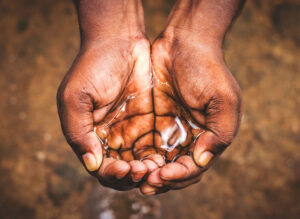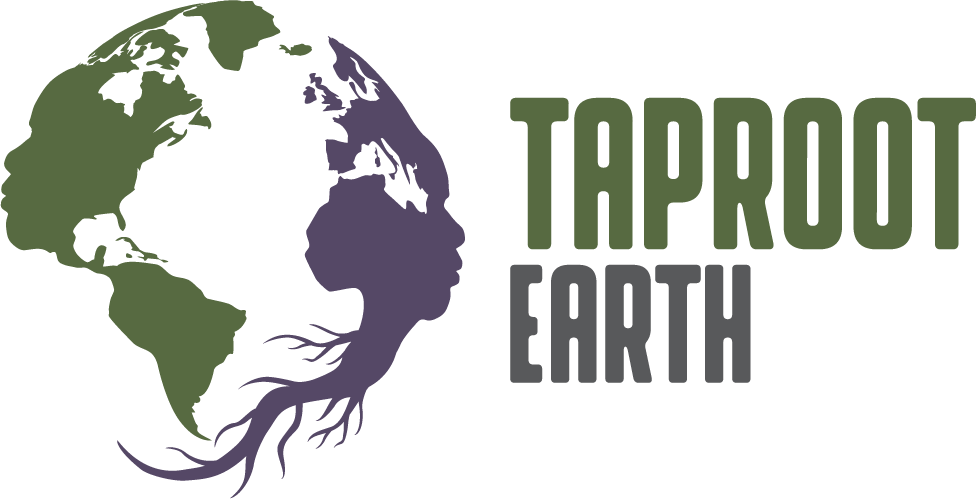 Espanol
Espanol
On March 20, the United Nations Intergovernmental Panel on Climate Change (IPCC) released its sixth assessment report, underscoring what frontline communities and scientists have long known: fossil fuel expansion is accelerating climate change and threatening the human right to water globally, from Eastern Africa to the Western United States.
The IPCC report comes a few days before World Water Day and a global UN Water Conference, highlighting the threats to life on our planet, and the need for urgent and meaningful action.
Sriram Madhusoodanan, Taproot Earth’s International Strategy Director, comments:
“The IPCC report confirms what the frontlines have been saying for decades, as they dig themselves out of hurricanes, droughts, and food insecurity. There is no time to lose: countries must support a rapid and equitable phase-out of fossil fuels, reject dangerous and unproven technologies like carbon capture and sequestration, and enshrine community stewardship of our land, water, and energy. This three-part strategy is essential to building a climate future where communities can thrive. Anything else falls short.”
Here is our full analysis of the latest IPCC report:
Scientists back up what frontline communities have been telling us: We are facing an acceleration of irreparable climate impacts due to continued fossil fuel extraction. We join frontline communities and say: No more. We reject the greed of rich countries and corporations that put profits above people’s lives and we demand a new path forward rooted in justice and frontline experiences, voices, and leadership.
The report from the IPCC makes clear that climate change impacts are worsening every year. The evidence is inescapable: from historic wildfires and rainstorms across the American West to a multi-year drought and food crisis in Eastern Africa to severe floods and storms that have ripped through many communities including the Gulf South and Appalachia.
Yet for decades, leaders from wealthy high-emitting countries have failed to take the steps necessary to stave off the worst impacts of climate change: ending dependence on polluting fossil fuels.
Fossil fuel extraction and burning are the primary reasons that we are dangerously close to the threshold of 1.5 degrees Celcius. Instead of initiating a rapid and just transition off fossil fuels, major polluting economies like the United States are greenlighting new fossil fuel projects. The recent decisions to expand oil drilling in the Gulf and approve the Willow Project, paired with hype for technological solutions like carbon capture and sequestration (CCS) and blue hydrogen hasten the likelihood of climate disaster and environmental injustices. Time and again, it is Black and Indigenous communities, who are bearing the brunt of the impacts of climate change while having contributed the least to fueling the crisis.
This week, the UN will hold a landmark conference on water with the goal of emphasizing that access to clean water and sanitation is a human right. The stakes could not be higher. From Jackson, Mississippi to Lagos, Nigeria, water privateers are undermining this goal by continuing to exploit water for profit. Making matters worse, the fossil fuel industry pollutes our water sources through its use in intensive industrial processes including fracking and tar sands, methods that involve depleting freshwater resources. The 2010 BP oil drilling disaster and the most recent Norfolk Southern train derailment in East Palestine, Ohio, are examples of how the watershed, food systems, and health all become compromised when industry chooses extraction and profit over people’s well-being.
When these disasters happen, the human right to water is undermined. In Michigan and Maine, Nestle mines water and packages it in plastic bottles whose own inputs are byproducts of fracked gas operations that are despoiling groundwater resources across regions like Appalachia. Too often, communities hit by water crises – like Flint, MI, and Jackson, MS – are left to purchase plastic water bottles, sometimes paying out of their own pockets. These disasters take place against a backdrop of growing water privatization and dwindling government investment in public water systems that decreases water affordability, reduce quality, and leave communities at risk for future disasters. Altogether this creates a doom loop of extraction, commodification, and privatization of our water, which compounded with accelerating climate impacts will increase water scarcity and fast-track us to a dystopian climate future.
This is not acceptable. The IPCC report makes it clear that we must move forward in a different way. Frontline communities from the Gulf South to the Global South have solutions that are rooted in repair, healing, and ecological restoration. To realize these solutions we must:
- Rapidly and equitably transition off fossil fuels.
- Meaningfully invest in justly-sourced renewables and other frontline climate solutions.
- Advance community governance and stewardship of our resources, beginning with water.
This is the work to repair, reimagine, and restore our relationship with all life on this planet. This is the path toward cultivating a world where all of us live, rest, and thrive in the places that we love. The time for action is now.


